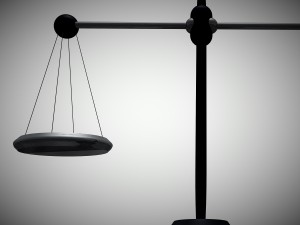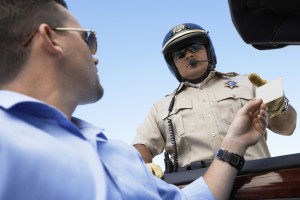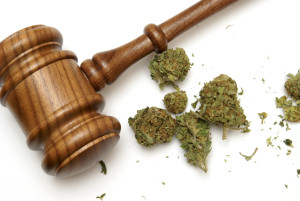 The last entry in this blog discussed lesson number one for appealing an Ohio Administrative License Suspension (A.L.S.). The lesson came from a recent appellate case. That lesson was for defense lawyers, and it was simple: file the appeal on time. This entry discusses lesson number two, which also comes from a recent appellate case. This lesson is for courts, and it is also simple: follow the law.
The last entry in this blog discussed lesson number one for appealing an Ohio Administrative License Suspension (A.L.S.). The lesson came from a recent appellate case. That lesson was for defense lawyers, and it was simple: file the appeal on time. This entry discusses lesson number two, which also comes from a recent appellate case. This lesson is for courts, and it is also simple: follow the law.
Articles Posted in DUI/OVI Constitutional issues
Weakening Of Exclusionary Rule Could Affect Ohio DUI/OVI Cases
 At some point, the exception becomes the rule. To discourage police from violating individual rights, we developed the exclusionary rule. If evidence is obtained as a result of an unreasonable search or seizure, or other Constitutional violation, the evidence is excluded from trial. That’s the general rule. Courts, however, have created exceptions to this rule. One exception to the exclusionary rule was the subject of a recent case before the United States Supreme Court. The outcome of that case could affect DUI/OVI cases in Ohio.
At some point, the exception becomes the rule. To discourage police from violating individual rights, we developed the exclusionary rule. If evidence is obtained as a result of an unreasonable search or seizure, or other Constitutional violation, the evidence is excluded from trial. That’s the general rule. Courts, however, have created exceptions to this rule. One exception to the exclusionary rule was the subject of a recent case before the United States Supreme Court. The outcome of that case could affect DUI/OVI cases in Ohio.
U.S. Supreme Court Decides Constitutionality Of Warrantless Blood Tests And Breath Tests In DUI Cases
 Last week, the United States Supreme Court released a decision in a trio of cases involving DUI refusal laws. A previous article in this blog gives a preview of the cases. To decide the outcomes of those cases, the court analyzes whether search warrants are required before law enforcement officers can administer breath tests and blood tests. Based on that analysis, the Court decides whether states can make it illegal to refuse chemical tests in DUI cases. The Court’s decision will impact Ohio DUI/OVI cases.
Last week, the United States Supreme Court released a decision in a trio of cases involving DUI refusal laws. A previous article in this blog gives a preview of the cases. To decide the outcomes of those cases, the court analyzes whether search warrants are required before law enforcement officers can administer breath tests and blood tests. Based on that analysis, the Court decides whether states can make it illegal to refuse chemical tests in DUI cases. The Court’s decision will impact Ohio DUI/OVI cases.
Ohio DUI/OVI Refusal Law May Be Affected By Cases In U.S. Supreme Court
 Suppose a police officer comes to your home tonight without a warrant and wants you to consent to a search of your residence. If you are like most people, you would say ‘no’: you would assert your Fourth Amendment right to be free from unreasonable searches and seizures. Now suppose the government makes it a crime for you to refuse to consent to the search. That’s what Ohio and several other states have done with DUI laws which criminalize refusing a breath/blood/urine test. Those laws are the subject of cases currently before the United States Supreme Court.
Suppose a police officer comes to your home tonight without a warrant and wants you to consent to a search of your residence. If you are like most people, you would say ‘no’: you would assert your Fourth Amendment right to be free from unreasonable searches and seizures. Now suppose the government makes it a crime for you to refuse to consent to the search. That’s what Ohio and several other states have done with DUI laws which criminalize refusing a breath/blood/urine test. Those laws are the subject of cases currently before the United States Supreme Court.
Class Action Lawsuit Challenges DUI Administrative License Suspensions
 Ohio takes drivers’ licenses before a person is found guilty of DUI/OVI. If a person is arrested for DUI/OVI and tests over the limit, or refuses to test, that person’s license is suspended immediately. No judge reviews the circumstances beforehand to determine if the suspension should be imposed. Instead, the executive branch of the government takes the driver’s license automatically.
Ohio takes drivers’ licenses before a person is found guilty of DUI/OVI. If a person is arrested for DUI/OVI and tests over the limit, or refuses to test, that person’s license is suspended immediately. No judge reviews the circumstances beforehand to determine if the suspension should be imposed. Instead, the executive branch of the government takes the driver’s license automatically.
The Speedy Trial Clock In Ohio DUI/OVI Cases With Blood Or Urine Tests
 Four months after Brittany was arrested and charged with OVI, the government charged her with a second count of OVI. In November, Brittany was arrested for OVI. On the day of her arrest, she submitted a urine sample, and she was charged with OVI. Three weeks later, the urine sample was analyzed, and the result was provided to the police department. In March, four months after the arrest, the police department charged Brittany with a second count of OVI based on the result of the urine test. Isn’t that a violation of her right to a speedy trial?
Four months after Brittany was arrested and charged with OVI, the government charged her with a second count of OVI. In November, Brittany was arrested for OVI. On the day of her arrest, she submitted a urine sample, and she was charged with OVI. Three weeks later, the urine sample was analyzed, and the result was provided to the police department. In March, four months after the arrest, the police department charged Brittany with a second count of OVI based on the result of the urine test. Isn’t that a violation of her right to a speedy trial?
When Are Miranda Warnings Required In Ohio DUI/OVI Cases?
 The Miranda warnings are well-known: “you have the right to remain silent….” What is not so well-known is when the Miranda warnings are required. According to Miranda v. Arizona, the warnings must be given when a suspect is questioned while ‘in custody’. If a suspect is in custody and the warnings are not given, statements made by the suspect cannot be used in the suspect’s trial.
The Miranda warnings are well-known: “you have the right to remain silent….” What is not so well-known is when the Miranda warnings are required. According to Miranda v. Arizona, the warnings must be given when a suspect is questioned while ‘in custody’. If a suspect is in custody and the warnings are not given, statements made by the suspect cannot be used in the suspect’s trial.
Ohio DUI/OVI Marijuana Law Upheld After Half-Baked Attack
 An appellate case decided earlier this month illustrates how not to attack the constitutionality of a law. In the case of State v. Topolosky, the Tenth District Court of Appeals upheld Ohio’s DUI/OVI marijuana law. Coincidentally, just before the case was published, I wrote about this topic in this blog, and I spoke about this topic at two seminars. The defendant in Topolosky did essentially the opposite of what I suggested in the blog and presentations. The defendant used an argument destined to fail…with bad timing…without an expert witness.
An appellate case decided earlier this month illustrates how not to attack the constitutionality of a law. In the case of State v. Topolosky, the Tenth District Court of Appeals upheld Ohio’s DUI/OVI marijuana law. Coincidentally, just before the case was published, I wrote about this topic in this blog, and I spoke about this topic at two seminars. The defendant in Topolosky did essentially the opposite of what I suggested in the blog and presentations. The defendant used an argument destined to fail…with bad timing…without an expert witness.
Are Ohio’s DUI/OVI Marijuana Laws Constitutional?
 Issue 3 went up in smoke last week, so it’s still illegal to use marijuana in Ohio. It’s also illegal to operate a vehicle under the influence of marijuana or with a prohibited level of marijuana metabolite in one’s urine. The last article in this blog addressed the duration of marijuana’s effects and the duration of marijuana’s detectability. The conclusion was marijuana effects last for two hours to five hours, but marijuana metabolites are detectable in urine for up to five weeks. With that backdrop, this article discusses whether Ohio’s DUI/OVI marijuana laws are Constitutional.
Issue 3 went up in smoke last week, so it’s still illegal to use marijuana in Ohio. It’s also illegal to operate a vehicle under the influence of marijuana or with a prohibited level of marijuana metabolite in one’s urine. The last article in this blog addressed the duration of marijuana’s effects and the duration of marijuana’s detectability. The conclusion was marijuana effects last for two hours to five hours, but marijuana metabolites are detectable in urine for up to five weeks. With that backdrop, this article discusses whether Ohio’s DUI/OVI marijuana laws are Constitutional.
Marijuana Metabolism And Ohio’s DUI/OVI Laws
 Next week, Ohioans will vote on Issue 3: a state constitutional amendment to legalize marijuana for medicinal and personal use*. If marijuana use is legalized in Ohio, more drivers will face charges of operating a vehicle under the influence of marijuana. Ohio’s OVI-marijuana laws raise many questions: How long does a marijuana high last? Does marijuana impair driving ability? Do blood and urine test results correlate with impaired driving ability? Are Ohio’s OVI-marijuana laws Constitutional? This article addresses the first question by discussing the duration of marijuana effects.
Next week, Ohioans will vote on Issue 3: a state constitutional amendment to legalize marijuana for medicinal and personal use*. If marijuana use is legalized in Ohio, more drivers will face charges of operating a vehicle under the influence of marijuana. Ohio’s OVI-marijuana laws raise many questions: How long does a marijuana high last? Does marijuana impair driving ability? Do blood and urine test results correlate with impaired driving ability? Are Ohio’s OVI-marijuana laws Constitutional? This article addresses the first question by discussing the duration of marijuana effects.
 Columbus OVI/DUI Attorney Blog
Columbus OVI/DUI Attorney Blog

